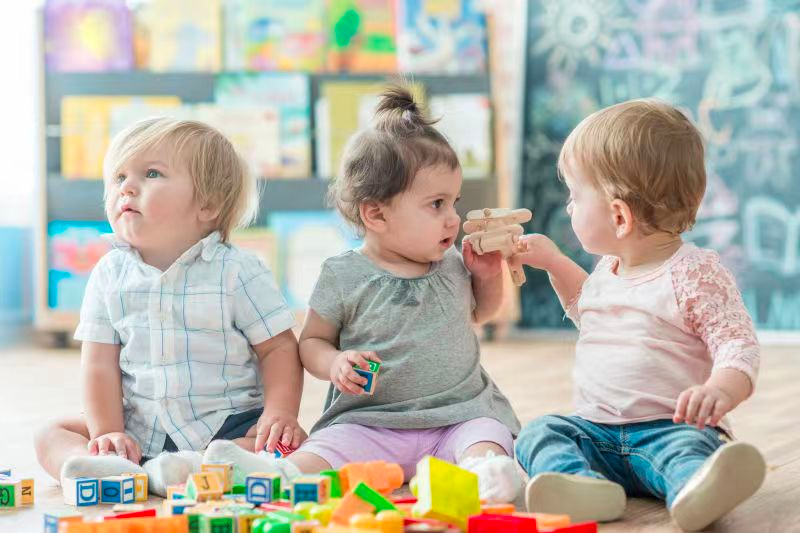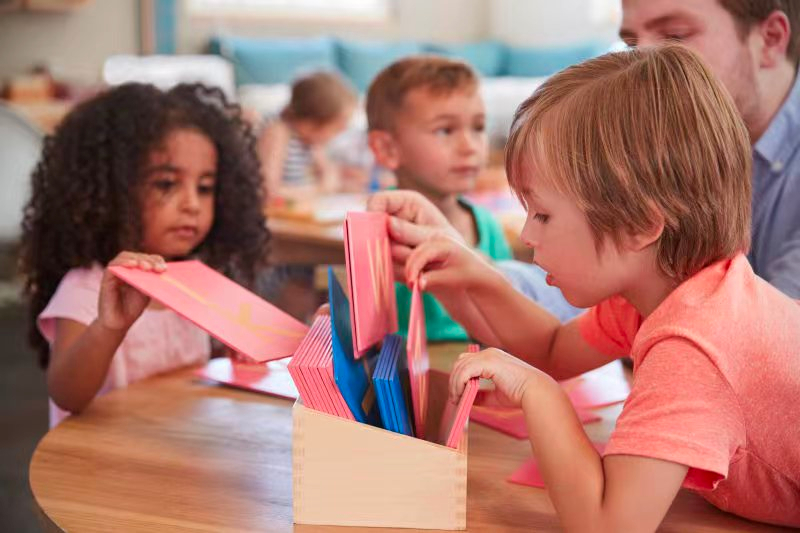Programs
Program Approach
The Montessori method is a student-centered educational approach for children that helps each child succeed in reaching their full potential for all areas of life. A prepared environment that encourages creativity and curiosity, leads children to ask questions, explore, investigate and think for themselves as they acquire skills. Together with emergent curriculum, the goal is to create meaningful learning experiences for the children based on four major foundations; belonging, engagement, expression, and well-being.
Infant Richmond Hill Location Only
Exploring the World Around Me
Babies are incredibly curious, unique individuals, spending their time discovering the world around them and creating lasting cognitive connections. In our infant program our team of educators provide a warm, nurturing and most importantly, safe environment that feels like home. During their day our infants engage in various activities such as Music, Creative Arts, Early Literacy and free exploration of the classroom toys and materials. Both our indoor classroom environment and outdoor play area in Richmond Hill provide an enriching space for infants to strengthen their physical and social development. At a 3:1 ratio, trusting relationships are built between students and educators, allowing for many 1-on-1 teachable moments.
“Play is our brain’s favourite way of learning.”-- Diane Ackerman

 FAQ
FAQToddler
Supporting Independence and Play
At the Toddler age, children have an innate desire to do everything on their own. In our Toddler programs we provide a dedicated educational environment, which allows children to build their independence, motor skills and language development. Our educators begin to focus more on literacy and fine-motor skill building, as well as providing creative experiences where Toddlers can explore the process of art instead of the product. From 18 months to 2½ years children often play parallel to their peers. Our Toddler classrooms in Richmond Hill and Markham are designed with this in mind, providing a safe environment for them to learn and play in their own unique ways. Their busy little bodies are given plenty of outdoor play opportunities to run, jump, kick, climb and build gross-motor strength. A day in the life of a Toddler is never boring!
“Play is often talked about as if it were a relief from serious learning. But for children, play is serious learning. Play is really the work of childhood.”-- Fred Rogers

 FAQ
FAQCASA
“Children’s House”
Our unique Preschool program in Richmond Hill & Markham provides a stimulating learning experience that fosters both physical and social-emotional development in children. The daily curriculum focuses on academic areas as well as honing real life skills, helping children to reach their full potential; becoming independent, capable, lifelong learners. Toys and materials that are found in each CASA classroom are specifically designed to engage the children in meaningful, hands-on play. Our educators offer age-appropriate provocations to guide each child in their work, while following the set Montessori curriculum each day. With the importance of body movement being essential for the mind to focus on tasks ahead, our Preschoolers are encouraged often to get up and move! especially during daily outdoor play opportunities. We want each child in our CASA programs to develop a sense of responsibility, strong self-esteem and confidence in their motor control, coordination and concentration.
“The goal of early childhood education should be to activate the child’s own natural desire to learn.”-- Maria Montessori

 FAQ
FAQ